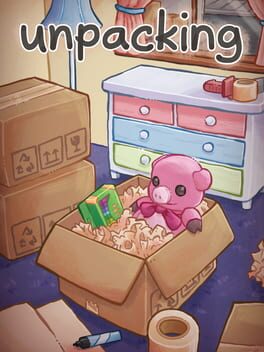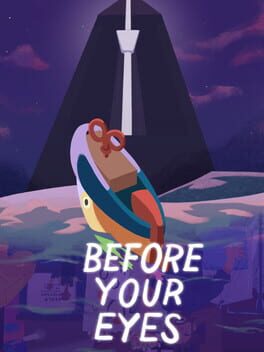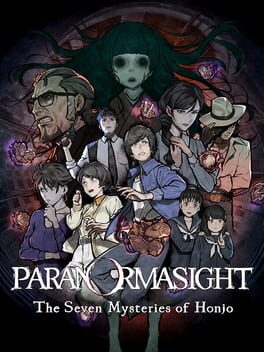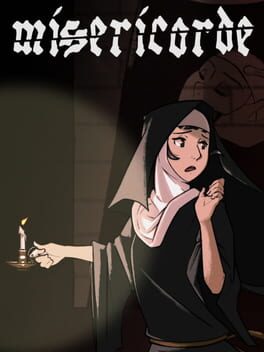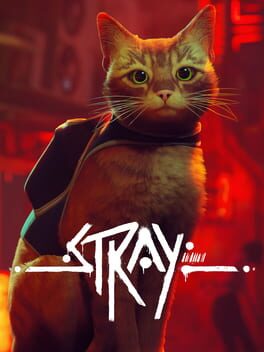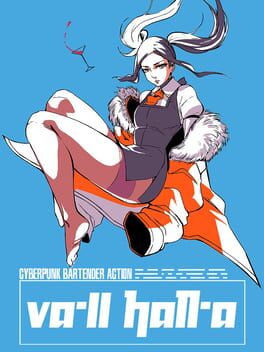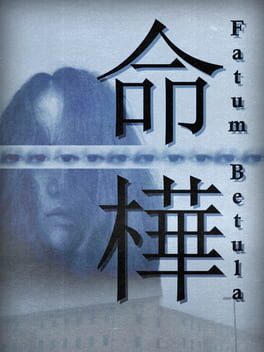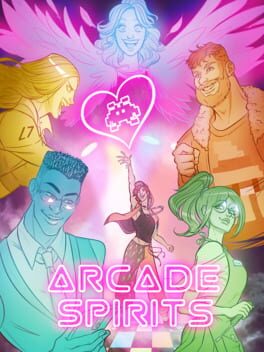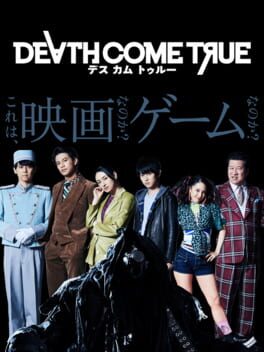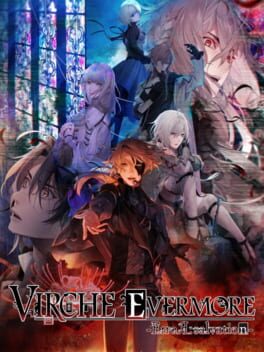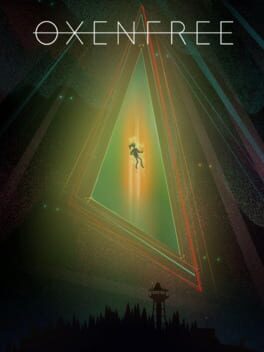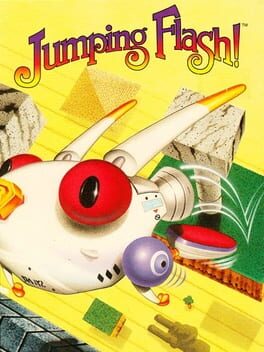kaeruk
619 Reviews liked by kaeruk
Unpacking
2021
I really enjoyed the gentle environmental storytelling here, so many details that can be inferred from what items stick around between moves and which ones fall behind which in turn informs how you choose to sort and decorate these rooms, making the practical layout line up as best as possible with your understanding of the protagonist and how they'd use the space. There's some really lovely stuff here about how as we grow we both keep some parts of ourself whilst shedding others, and how moving home can be a moment that brings these changes into focus.
As much as those aspects of the game resonated, I'm filing Unpacking under "I wish this was a bit less of a game". At the end of every level, after decking out your new home, the game will highlight any objects that are out of place with a red outline if they're in the 'wrong' place, and then you get the job of placing each of those items in however many locations until they're in the 'right' place instead. So many of these placement rules feel arbitrary or even downright silly, and whilst I understand that the developers don't want you doing nonsense like putting toilet paper in the kitchen sink I did find myself wishing that I could be trusted a bit more to place things where they feel right to me. Not dissimilarly, everything feels a bit too neat to me at times; so often the amount of underwear you have will perfectly fill exactly one drawer, for example, which does partly undo the feeling of this as a life being lived.
Still very much liked the vibes of this game, and generally enjoyed the experience.
As much as those aspects of the game resonated, I'm filing Unpacking under "I wish this was a bit less of a game". At the end of every level, after decking out your new home, the game will highlight any objects that are out of place with a red outline if they're in the 'wrong' place, and then you get the job of placing each of those items in however many locations until they're in the 'right' place instead. So many of these placement rules feel arbitrary or even downright silly, and whilst I understand that the developers don't want you doing nonsense like putting toilet paper in the kitchen sink I did find myself wishing that I could be trusted a bit more to place things where they feel right to me. Not dissimilarly, everything feels a bit too neat to me at times; so often the amount of underwear you have will perfectly fill exactly one drawer, for example, which does partly undo the feeling of this as a life being lived.
Still very much liked the vibes of this game, and generally enjoyed the experience.
Aviary Attorney
2015
Before Your Eyes
2021
There's a damning paradox in the mystery genre: the more interesting, clever, or unique you try to make your twists and solutions, the easier it becomes to solve the mystery. Read enough of these and you tend to stop thinking like a detective and start thinking like an author: "what would be the cool thing to do here" becomes the best heuristic for predicting where the story's going to go. Due to the interactivity aspect, VNs are even more likely to fall into this trap, and this is no exception.
That said, Paranormasight is a fun ride. Slick presentation and an entertaining cast will bolster any narrative, and the supernatural angle injects enough possibilities into the world to keep it from getting too predictable. I am a little disappointed that the curse-based Stand battles end after the prologue, though, even if they were pretty gimmicky.
That said, Paranormasight is a fun ride. Slick presentation and an entertaining cast will bolster any narrative, and the supernatural angle injects enough possibilities into the world to keep it from getting too predictable. I am a little disappointed that the curse-based Stand battles end after the prologue, though, even if they were pretty gimmicky.
When I first started reading Misericorde, the structure, genre, themes, and Photoshop-filter backgrounds gave me strong Umineko vibes, and I wondered whether it was actually an inspiration or just me having "guy who's only seen Boss Baby" syndrome. Then every character started lecturing me about chess, and that question was put to rest immediately.
Jokes aside, Misericorde is excellent so far. Obviously it's hard to have a complete opinion on an incomplete story, but even if the game ultimately fails to deliver on its surface-level intrigue it will still have oodles of arresting prose and anxious atmosphere to make it a worthwhile read. The cast is uniformly excellent, archetypal enough to stay distinct in memory for however long it takes the next volume to release but grounded enough to provide depth and properly complement the tone (I think Darcy might go too far, with her permanent :3 mouth and Homestuckian speech patterns, but she's Darcy so I'll let it slide).
The soundtrack is also fantastic - I was not expecting breakcore to fit so well with a story set in 1482 but here we are.
Jokes aside, Misericorde is excellent so far. Obviously it's hard to have a complete opinion on an incomplete story, but even if the game ultimately fails to deliver on its surface-level intrigue it will still have oodles of arresting prose and anxious atmosphere to make it a worthwhile read. The cast is uniformly excellent, archetypal enough to stay distinct in memory for however long it takes the next volume to release but grounded enough to provide depth and properly complement the tone (I think Darcy might go too far, with her permanent :3 mouth and Homestuckian speech patterns, but she's Darcy so I'll let it slide).
The soundtrack is also fantastic - I was not expecting breakcore to fit so well with a story set in 1482 but here we are.
It took me 14 hours and 8 pages of hand-written notes to solve this thing - and I loved every minute of it. None of the puzzles are especially difficult in themselves. But they hit you with so many different areas to investigate and avenues to explore that the resulting overwhelmed confusion prevents you from getting to the core of them. I spent most of Lorelei and the Laser Eyes understanding its internal logic. Which is exactly the right combination of actual logic and magical thinking to make it just work for me. The puzzles are of the "really good escape room"-type and manage to be quite unique despite their sheer amount. The visual design and atmosphere bring the entire experience home for me: The entire game is filled to the brim with eerie vibes. It's haunting. Its puzzles haunted me throughout my day. Just as Lorelei is haunted. And now, I'll leave the rest of the game's secrets to smarter people. Godspeed, discord servers of the world!
Stray
2022
"It was originally called Pretty Woman, but too many people complained there should be a Piano Woman if there was a Piano Man." If you enjoy the joke, you'll probably like VA-11 Hall-A as a whole. Most of its humor, aside from the constant sex jokes, is this same concept repeated to infinity. It rolls its eyes at people feeling hurt or offended by language "while the World burns" so to speak. This idea could theoretically work if, in juxtaposition, they engaged in a meaningful way with any of the dystopic situations they present as normality in this universe (being Dorothy's appearance and job the clearest example). Unfortunately they fail to do so. While I don't doubt the story itself could develop into something fun in later stages, I can't get myself to continue playing it. I just wasn't the intended audience for this kind of shallow bad faith writing.
Fatum Betula
2020
I'm not fully sold on this one... Don't get me wrong, I think Fatum Betula absolutely nails the atmosphere its going for. The premise is utterly bizarre in a good way, the individual set pieces in the game are generally good and some are great (I'm a big fan of the kaleidoscopic 'Nightmare Cherry Blossom' area). The music and visuals are both pretty damn solid and, despite the absurdist and dreamlike nature of the game, the puzzles don't rely on too much moon logic to be solved.
But Fatum Betula really isn't much more than the sum of its parts. The game in general lacks coherence, and most things in the game feel like they are just there because the dev wanted to make them rather than for any greater purpose. The only real universal thread in this game is a theme of existentialism, but the game really doesn't have a whole lot of interest to say on this theme and comes across as a little obvious and shallow.
Also, a minor complaint, but why are the loading times as long as they are? This game looks like it's optimised to run on a baked potato, so why is there a 5-10 second loading screen whenever I move from one small area to another? This doesn't sound like a lot, but a couple of the secrets in the game are based around objects which have a random chance to spawn, and constantly reloading areas to try and force these ends up being deeply painful. To be honest, I think having randomly spawning entities in a game like this is a massive misstep, but the coupld of instances of it here are late enough into the endgame to not have much effect on most of my playtime.
I dunno, maybe I just don't get it (see also How Fish is Made), but overall Fatum Betula felt too random and tonally disjointed for me to really get into this like I did with, say, Yume Nikki. I certainly didn't dislike this or anything, and I'd say it was worth it just for the unsettling vibes and trippy visuals alone. But despite that, the lack of depth here means I probably won't remember this one for too long.
But Fatum Betula really isn't much more than the sum of its parts. The game in general lacks coherence, and most things in the game feel like they are just there because the dev wanted to make them rather than for any greater purpose. The only real universal thread in this game is a theme of existentialism, but the game really doesn't have a whole lot of interest to say on this theme and comes across as a little obvious and shallow.
Also, a minor complaint, but why are the loading times as long as they are? This game looks like it's optimised to run on a baked potato, so why is there a 5-10 second loading screen whenever I move from one small area to another? This doesn't sound like a lot, but a couple of the secrets in the game are based around objects which have a random chance to spawn, and constantly reloading areas to try and force these ends up being deeply painful. To be honest, I think having randomly spawning entities in a game like this is a massive misstep, but the coupld of instances of it here are late enough into the endgame to not have much effect on most of my playtime.
I dunno, maybe I just don't get it (see also How Fish is Made), but overall Fatum Betula felt too random and tonally disjointed for me to really get into this like I did with, say, Yume Nikki. I certainly didn't dislike this or anything, and I'd say it was worth it just for the unsettling vibes and trippy visuals alone. But despite that, the lack of depth here means I probably won't remember this one for too long.
Arcade Spirits
2019
https://www.backloggd.com/u/HuFe/list/gay-visual-novels-ranked-bara/
The Overall Game
A visual novel with a great retro-futuristic atmosphere and design, set in an alternative future where the videogame crash never happened, so the world ended up completely submerged in the industry’s aesthetic and way of life. The main story is that you look for work at an arcade, and the place ends up becoming the place you call home. It focuses on child friendly relationships and deep connections, leaving the romance aspect as secondary and optional. There's 7 romanceable characters, 3 boys and 4 girls, and they can always be interested in you, no matter the gender you choose. They hired actors to perform a few of their lines, and they also say quips like “Will do!” from time to time, and this helps them become fully fleshed out characters. It would be nicer if the game was fully voiced because I don’t like to read, but oh well.
Big Feature 1: Character Creation
You can play as any gender you want, and the game offers a significant amount of customization for the main character, a rarity in these kinds of games. This is similar to Dream Daddy, but instead of focusing on having lots of shit to choose from, the main objective is to be able to show all possible customizable characters in the unlockable wallpapers, which is pretty cool in concept. However, I have some complaints with this system: The head/face shape is not customizable, therefore they focused on making it as gender neutral as possible, but this has the consequence that your character always looks ambiguous, you can't be femme or masc no matter how hard you try (And they don't even offer any facial hair options, I'm screwed). They also don't let you choose your body type, so you are forced to be skinny.
Big Feature 2: Point System
Another big part of the story is that you have a robot helper named Iris. She keeps track of your personality points, and of your friendship points. You can flirt with any of the characters along the way, but once you get closer to the end of the game, Iris tells you that it’s an ideal moment for you to start a romantic relationship with one of the characters. And she acts as matchmaker, telling you the friendship points you have with each person, and she offsets the score taking into account your personality points, offering your perfect suitable match. You can choose to igore her advice and choose another person, and you have the option to be asexual or to remain single, but I don’t think you have the option to be polyamorous, and I’m sure that is disappointing to the community.
My Personal Taste
The game has a linear story that focuses mostly on improving your arcade workplace and becoming friends with everyone along the way, so it forces you to spend some time with all the characters, even when you don’t like them very much. This initially annoyed me, as I didn’t care about 90% of the characters, but in retrospect it’s actually kind of cute, and now I'm feeling very nostalgic for the whole experience. I honestly just played the game because I wanted to date Percy, and I did just that. If you put a ginger bear in your game, I will play it. The funny thing is that he turned out to be a good lad just like me: kindness was our largest personality trait, so we were actually compatible on an emotional level. The Percy romance is so cute that I consider it one of my favourites of all time, and as a big sucker for a good romance storyline, it made the entire game for me.
The Overall Game
A visual novel with a great retro-futuristic atmosphere and design, set in an alternative future where the videogame crash never happened, so the world ended up completely submerged in the industry’s aesthetic and way of life. The main story is that you look for work at an arcade, and the place ends up becoming the place you call home. It focuses on child friendly relationships and deep connections, leaving the romance aspect as secondary and optional. There's 7 romanceable characters, 3 boys and 4 girls, and they can always be interested in you, no matter the gender you choose. They hired actors to perform a few of their lines, and they also say quips like “Will do!” from time to time, and this helps them become fully fleshed out characters. It would be nicer if the game was fully voiced because I don’t like to read, but oh well.
Big Feature 1: Character Creation
You can play as any gender you want, and the game offers a significant amount of customization for the main character, a rarity in these kinds of games. This is similar to Dream Daddy, but instead of focusing on having lots of shit to choose from, the main objective is to be able to show all possible customizable characters in the unlockable wallpapers, which is pretty cool in concept. However, I have some complaints with this system: The head/face shape is not customizable, therefore they focused on making it as gender neutral as possible, but this has the consequence that your character always looks ambiguous, you can't be femme or masc no matter how hard you try (And they don't even offer any facial hair options, I'm screwed). They also don't let you choose your body type, so you are forced to be skinny.
Big Feature 2: Point System
Another big part of the story is that you have a robot helper named Iris. She keeps track of your personality points, and of your friendship points. You can flirt with any of the characters along the way, but once you get closer to the end of the game, Iris tells you that it’s an ideal moment for you to start a romantic relationship with one of the characters. And she acts as matchmaker, telling you the friendship points you have with each person, and she offsets the score taking into account your personality points, offering your perfect suitable match. You can choose to igore her advice and choose another person, and you have the option to be asexual or to remain single, but I don’t think you have the option to be polyamorous, and I’m sure that is disappointing to the community.
My Personal Taste
The game has a linear story that focuses mostly on improving your arcade workplace and becoming friends with everyone along the way, so it forces you to spend some time with all the characters, even when you don’t like them very much. This initially annoyed me, as I didn’t care about 90% of the characters, but in retrospect it’s actually kind of cute, and now I'm feeling very nostalgic for the whole experience. I honestly just played the game because I wanted to date Percy, and I did just that. If you put a ginger bear in your game, I will play it. The funny thing is that he turned out to be a good lad just like me: kindness was our largest personality trait, so we were actually compatible on an emotional level. The Percy romance is so cute that I consider it one of my favourites of all time, and as a big sucker for a good romance storyline, it made the entire game for me.
Arcade Spirits
2019
An excellent VN from start to finish, Arcade Spirits isn’t afraid of conflict, hardship, and repeatedly confronting the MC with their own self-doubts. As a wonderfully queer game that emphasizes self-expression, the choices presented nonetheless feel impactful on the direction of the story. Character romance intertwines well with that story, overall. Sure, gameplay is the standard multiple choice and stats-based fare, but the writing and characters shine over those basic mechanics.
Death Come True
2020
Fairly inoffensive, but also aggressively not good. Considering Danganronpa's Kodaka was behind this, it could've been a lot more uncomfortable (but the mystery could've been more engaging, too). It's not the worst way to spend a whole couple of hours or less, unless you're epileptic, in which case you might genuinely die from all the erratic light effects.
I'll be the first to admit that I'm not the target audience for this game. I'm a trans lesbian whose enjoyment of otome games typically stems from either the bizarre stories or the (often unintentional) exploration of kink, trauma, and relationship dynamics.
That being said, Virche Evermore is fascinating to me. On one hand, it's got a really neat setting, some genuinely likable character writing, and tries to tackle some themes that I rarely see games even acknowledge. On the other hand, it's a fifty-four hour long slog that's filled with a bunch of half-assed story threads, a distinct lack of anything romantically appealing, some of the worst attempts at Sci-Fi that I've ever read, and some genuinely uncomfortable depictions of abuse that are handled really, REALLY poorly.
[i]The TL;DR is that I would recommend Virche Evermore, but only to those players like myself who enjoy playing a lengthy, middling game every now and again. Virche Evermore likely isn't going to change your life, but it will worm its way into your brain and fester there. This game is fascinating, but that doesn't make it good.[/i]
[b]- CW // Mentions of Spousal Abuse, Death, Violence -[/b]
From here on, this is more my stream of consciousness thoughts.
I think that Virche is at it's best when it's simply telling you a story. The story of Arpéchéle, of the people who live there and the history of the setting, is some genuinely solid background. For the first few routes, that was enough to pull me in. The routes that have a narrative focus feel far sharper than the routes that focus on relationships, and while the romance didn't land for me, I think that this narrative-precedence would still affect me even had I fallen for one of the guys. Without spoiling, there's three routes that feel far more important than the rest, and as a result, everything lands so much better for them.
I also appreciate how much of the story revolves around its core themes: that of life and death. Each character interacts with and approaches these issues differently, and while I don't always agree with the conclusions, I like how much variety there is in the LI's thoughts on the subject. It helps to flesh them out, and the world as a whole too.
The characters are...alright? Having gone through all the routes (and most of the bad ends), I have my favorites. But unfortunately, because of the awkward pacing and the (at times) bizarre lead-ins to the third act conflicts, you get very little time to actually get to know them. Hell, most of each character's characterization comes from the common route. Generally for each character, their route is a third fun and cute fluff, and two-thirds drama. That only amounts to an hour or two of romance per LI, and while the true endings give you a bit more, I could see people interested in Virche Evermore's romance being sorely disappointed. The only genuinely interesting character, in my opinion, is Ceres. And even then, she often takes a back seat while plot is dolled out.
This undercuts much of the drama. It's hard to get emotional over character deaths when even side-characters tend to be constrained to a single route. And when there's so many deaths, murders, and suicides in one game, the raw, visceral impact of such gruesome writing evaporates. By the end it starts to get comical, and you'll be counting how many times you see the same alleys and the same bedrooms covered in blood.
This leads into my biggest issue with the game; it seems completely unaware that all of these relationships are - in some shape or form - abusive. I'm not a prude about toxic dynamics, and I enjoy some unhealthy and violent dynamics myself from time-to-time. But Virche Evermore gets under my skin with how uncritically it leads Ceres into terrible situations. Again, I won't be specific, but one of the routes feels eerily similar to real-life abusive relationships that I've witnessed. And in that route, Ceres' determination to love her abusive husband is framed as a genuinely noble and good thing by the game, which feels very...bad.
Beyond that though, most of the routes involve men completely controlling Ceres. Doing things to her against her whim, going to great lengths to control her, controlling her autonomy. There are some instances where this is clearly in service of kink, and I don't mind those cases. But it happens so frequently, and is so unaddressed by the game, that it gets uncomfortable if I think about it for too long. That, combined with every non-Ceres woman in the game being written as a cruel noble or a jealous prostitute, paints a really unflattering picture of those behind this game. Though I don't think this game is actively malicious or anything, just poorly written.
Virche Evermore wants to be a shocking, violent, cruel otome with brilliant sci-fi writing and a pile of plot twists meant to keep players talking for ages. What it is, however, is a confused, floundering mess that is just as charming as it is infuriating. It never delivers on its metaphors, it never even seems aware that it's as complex as it is, and despite all of that, some of it's shots land true. It's like a child swinging at a baseball on a tee. Every miss is infuriating. "You had it! It was right there!" But every so often it manages to hit the ball, and you can't help but smile.
I have a lot to say about this game, far more than I can squeeze into this review. But though I felt frustrated and annoyed most of the time, I'm still glad that I played this game. If you can enjoy bad games - if you love picking through the muck and looking for the pretty stones within - give Virche Evermore a shot. But don't expect a diamond in the rough. Just expect a pretty flower, one that wilts hours after it's plucked.
That being said, Virche Evermore is fascinating to me. On one hand, it's got a really neat setting, some genuinely likable character writing, and tries to tackle some themes that I rarely see games even acknowledge. On the other hand, it's a fifty-four hour long slog that's filled with a bunch of half-assed story threads, a distinct lack of anything romantically appealing, some of the worst attempts at Sci-Fi that I've ever read, and some genuinely uncomfortable depictions of abuse that are handled really, REALLY poorly.
[i]The TL;DR is that I would recommend Virche Evermore, but only to those players like myself who enjoy playing a lengthy, middling game every now and again. Virche Evermore likely isn't going to change your life, but it will worm its way into your brain and fester there. This game is fascinating, but that doesn't make it good.[/i]
[b]- CW // Mentions of Spousal Abuse, Death, Violence -[/b]
From here on, this is more my stream of consciousness thoughts.
I think that Virche is at it's best when it's simply telling you a story. The story of Arpéchéle, of the people who live there and the history of the setting, is some genuinely solid background. For the first few routes, that was enough to pull me in. The routes that have a narrative focus feel far sharper than the routes that focus on relationships, and while the romance didn't land for me, I think that this narrative-precedence would still affect me even had I fallen for one of the guys. Without spoiling, there's three routes that feel far more important than the rest, and as a result, everything lands so much better for them.
I also appreciate how much of the story revolves around its core themes: that of life and death. Each character interacts with and approaches these issues differently, and while I don't always agree with the conclusions, I like how much variety there is in the LI's thoughts on the subject. It helps to flesh them out, and the world as a whole too.
The characters are...alright? Having gone through all the routes (and most of the bad ends), I have my favorites. But unfortunately, because of the awkward pacing and the (at times) bizarre lead-ins to the third act conflicts, you get very little time to actually get to know them. Hell, most of each character's characterization comes from the common route. Generally for each character, their route is a third fun and cute fluff, and two-thirds drama. That only amounts to an hour or two of romance per LI, and while the true endings give you a bit more, I could see people interested in Virche Evermore's romance being sorely disappointed. The only genuinely interesting character, in my opinion, is Ceres. And even then, she often takes a back seat while plot is dolled out.
This undercuts much of the drama. It's hard to get emotional over character deaths when even side-characters tend to be constrained to a single route. And when there's so many deaths, murders, and suicides in one game, the raw, visceral impact of such gruesome writing evaporates. By the end it starts to get comical, and you'll be counting how many times you see the same alleys and the same bedrooms covered in blood.
This leads into my biggest issue with the game; it seems completely unaware that all of these relationships are - in some shape or form - abusive. I'm not a prude about toxic dynamics, and I enjoy some unhealthy and violent dynamics myself from time-to-time. But Virche Evermore gets under my skin with how uncritically it leads Ceres into terrible situations. Again, I won't be specific, but one of the routes feels eerily similar to real-life abusive relationships that I've witnessed. And in that route, Ceres' determination to love her abusive husband is framed as a genuinely noble and good thing by the game, which feels very...bad.
Beyond that though, most of the routes involve men completely controlling Ceres. Doing things to her against her whim, going to great lengths to control her, controlling her autonomy. There are some instances where this is clearly in service of kink, and I don't mind those cases. But it happens so frequently, and is so unaddressed by the game, that it gets uncomfortable if I think about it for too long. That, combined with every non-Ceres woman in the game being written as a cruel noble or a jealous prostitute, paints a really unflattering picture of those behind this game. Though I don't think this game is actively malicious or anything, just poorly written.
Virche Evermore wants to be a shocking, violent, cruel otome with brilliant sci-fi writing and a pile of plot twists meant to keep players talking for ages. What it is, however, is a confused, floundering mess that is just as charming as it is infuriating. It never delivers on its metaphors, it never even seems aware that it's as complex as it is, and despite all of that, some of it's shots land true. It's like a child swinging at a baseball on a tee. Every miss is infuriating. "You had it! It was right there!" But every so often it manages to hit the ball, and you can't help but smile.
I have a lot to say about this game, far more than I can squeeze into this review. But though I felt frustrated and annoyed most of the time, I'm still glad that I played this game. If you can enjoy bad games - if you love picking through the muck and looking for the pretty stones within - give Virche Evermore a shot. But don't expect a diamond in the rough. Just expect a pretty flower, one that wilts hours after it's plucked.
Oxenfree
2016
I love slow paced games, but the loading screen times and the walking speeds were slow enough to break my immersion. I also don't enjoy the way they suddenly show you the map when something new happens!
Overall it's an interesting enough story with enjoyable music and a really chill, creepy, and unique vibe. ...The vibe is mostly what kept me playing. It didn't hit any emotional notes for me, however I'll definitely pick up the second one whenever it goes on sale as I'm also curious how they'll expand on the usage of radios in gameplay.
Overall it's an interesting enough story with enjoyable music and a really chill, creepy, and unique vibe. ...The vibe is mostly what kept me playing. It didn't hit any emotional notes for me, however I'll definitely pick up the second one whenever it goes on sale as I'm also curious how they'll expand on the usage of radios in gameplay.
Jumping Flash!
1995
If I could jump that high...would I ever find the ground again?
Is it bad to jump that high into the sky of nostalgia? To let yourself slip away and put your head into the clouds? Will those clouds of nostalgia turn you against your peers who don't see the vision? The vision of a children's playground for you to jump around to your heart's content? Planting yourself on a little conveyor and riding on it like a first-person roller coaster? Pretending to pet the non-threatening round green birds that chirp "kiwi!" if you dare to shoot them?
I wish I could jump like Robbit, I wish I could shoot lasers like Robbit, and I wish I could make funny noises whenever I took a step forward like Robbit. Why is life such a bore? Why can't it be just playgrounds and rainbows? Why can I not be just like my hero Robbit? Fighting funny evil men with funny palm tree jellyfish henchmen.
Was it my mom's fault that she bought me this during a time where I got nothing for a majority of the year due to being a poor December baby? Is she to blame for this mess? My poisonous care for a simple video game that I had played too much? The rare time where I can attach my mom to a game instead of my gamer dad? My yearning for days that I didn't need to care about getting up for work in the morning? When I didn't have a constant worry for the struggles of others? Is it truly bad for me? To just make me forget, and make me care only about smiling and struggling to hold back my emotions? To just, feel once more?
Is it bad for me to feel like a kid again? For just one hour?
Why must life be so grounded...?
Let's go Robbit, let's jump and go...for old times' sake once more....
Is it bad to jump that high into the sky of nostalgia? To let yourself slip away and put your head into the clouds? Will those clouds of nostalgia turn you against your peers who don't see the vision? The vision of a children's playground for you to jump around to your heart's content? Planting yourself on a little conveyor and riding on it like a first-person roller coaster? Pretending to pet the non-threatening round green birds that chirp "kiwi!" if you dare to shoot them?
I wish I could jump like Robbit, I wish I could shoot lasers like Robbit, and I wish I could make funny noises whenever I took a step forward like Robbit. Why is life such a bore? Why can't it be just playgrounds and rainbows? Why can I not be just like my hero Robbit? Fighting funny evil men with funny palm tree jellyfish henchmen.
Was it my mom's fault that she bought me this during a time where I got nothing for a majority of the year due to being a poor December baby? Is she to blame for this mess? My poisonous care for a simple video game that I had played too much? The rare time where I can attach my mom to a game instead of my gamer dad? My yearning for days that I didn't need to care about getting up for work in the morning? When I didn't have a constant worry for the struggles of others? Is it truly bad for me? To just make me forget, and make me care only about smiling and struggling to hold back my emotions? To just, feel once more?
Is it bad for me to feel like a kid again? For just one hour?
Why must life be so grounded...?
Let's go Robbit, let's jump and go...for old times' sake once more....
